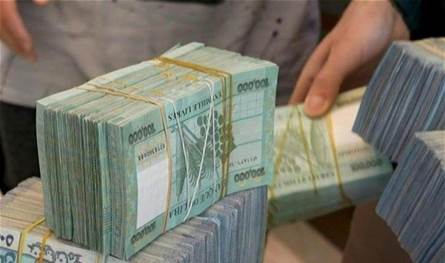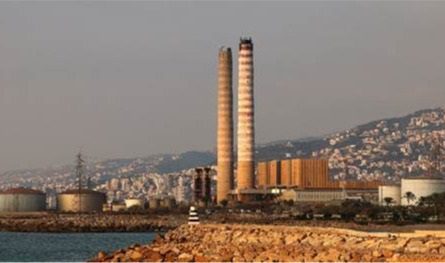How Lebanese Startups Are Innovating Through Crisis and Attracting Global Attention

When crisis hits, most people seek stability. But in Lebanon, many are building something new from the rubble. From an economic meltdown to political dysfunction, Lebanon has become a hotspot—not for despair, but for innovation. Lebanese startups are emerging as proof that where there’s hardship, there’s also opportunity. With creativity, grit, and the support of a global diaspora, Lebanon’s startup scene is not only surviving—it’s thriving.
Lebanon’s Startup Ecosystem in Context
What Is a Startup Ecosystem?
A startup ecosystem is a network of entrepreneurs, investors, institutions, and support services working together to create and grow new businesses. In Lebanon, this network has grown organically, with limited governmental support, but immense community drive.
Pre-crisis Entrepreneurial Activity in Lebanon
Even before the 2019 collapse, Lebanon had shown signs of promise. With high literacy rates, a multilingual population, and talented youth, tech-based ventures were already popping up across Beirut and beyond.
The Role of Universities and Incubators
Institutions like the American University of Beirut (AUB), Berytech, and the UK Lebanon Tech Hub have provided mentorship, seed funding, and training that laid the foundation for many current success stories.
Rising from the Rubble: How Crisis Sparked Creativity
Adapting to Lack of Resources
When banks froze deposits and inflation took over, entrepreneurs found new ways to operate—using digital currencies, remote teams, and frugal business models.
The Entrepreneurial Mindset in Tough Times
Rather than give up, Lebanese youth embraced a “hustle culture,” blending creativity with necessity. If there’s no electricity? Create a solar solution. If salaries are gone? Build a side hustle. That’s Lebanon in action.
The Digital Shift Post-2019
The crisis fast-tracked digital adoption. Startups in logistics, health, and education turned to mobile apps and online platforms, instantly expanding their reach.
Key Sectors Leading the Way
Fintech and Digital Banking Solutions
With trust in traditional banks broken, startups like Purpl and PinPay have stepped in, offering new solutions for money transfer, digital wallets, and crypto integration.
AgriTech and Food Security Startups
As imports became unaffordable, local food production boomed. AgriTech ventures like Cubex and Lifelab are using IoT and AI to boost crop yields and reduce water waste.
HealthTech Innovations
Startups like Sohati and Proximie are making healthcare more accessible, whether it’s through telemedicine or remote surgical technology.
E-commerce and Digital Services
Online shopping, delivery, and remote services like graphic design and coding saw a major boom, creating platforms that are now regionally competitive.
The Role of the Lebanese Diaspora in Startup Growth
Mentorship and Business Accelerators
Diaspora-led programs like LIFE and LebNet offer mentorship and networking that bridge Lebanese startups with Silicon Valley and other innovation hubs.
Funding and Seed Capital from Abroad
With local capital stuck in banks, many startups rely on angel investors and diaspora VCs who believe in Lebanon’s potential.
Global Networking Opportunities
Being Lebanese abroad means tapping into strong emotional and cultural ties—many investors want to give back and empower local innovation.
Successful Lebanese Startups Gaining International Recognition
Toters – Revolutionizing Delivery Services
Starting in Beirut, Toters now operates in multiple countries, offering everything from food to groceries to same-day packages.
Synkers (Now Ostaz) – Education Goes Digital
Founded by three Lebanese women, Ostaz connects students with qualified tutors across the MENA region. It’s one of Lebanon’s top EdTech success stories.
Moodfit – Wellness in a Time of Crisis
Mental health startup Moodfit provides therapy and wellness services, a growing need in Lebanon’s ongoing state of crisis.
Compost Baladi – Sustainability through Innovation
This startup tackles Lebanon’s garbage crisis with eco-friendly waste management and composting services, proving sustainability can be a profitable business.
The Funding Challenge
Local Banks and Financial Blockades
With capital controls in place, startups can’t access their own money—making international funding crucial.
Venture Capital from the Diaspora and Abroad
International investors are starting to notice Lebanon’s raw talent and low operational costs as competitive advantages.
Crowdfunding as an Alternative
Platforms like Zoomaal and GoFundMe allow startups to go directly to the people and raise seed money for their ideas.
Infrastructure and Governmental Obstacles
Power Outages and Internet Disruptions
Startups often rely on generators and satellite internet just to stay online—hardly ideal, but they’re making it work.
Regulatory and Legal Limitations
Cumbersome licensing processes and outdated laws make scaling difficult, especially for fintech and digital health.
Need for Policy Reform
Startups need clear legal frameworks, tax incentives, and access to international markets—things that require government action.
Lebanon’s Position in the MENA Startup Scene
Competing with UAE, Egypt, and Saudi Arabia
While Dubai offers stability and funding, Lebanon offers innovation at a fraction of the cost. Investors looking for raw talent are taking notice.
What Sets Lebanon Apart?
It’s the culture of resilience, creativity, and a global network that gives Lebanon an edge. Lebanese entrepreneurs are hungry—and that hunger fuels progress.
The Future of Lebanese Innovation
Young Talent and Brain Drain
While many are leaving, those who stay are determined to build something meaningful. The country’s future depends on keeping its young minds engaged and supported.
Diaspora Returnees Bringing Experience
Many Lebanese are returning with global experience and are investing their time and money in mentoring the next generation.
Building Resilient Startups for a Global Market
Startups in Lebanon are now designed for scale—solving local problems with global solutions, making them attractive to international partners.
Conclusion
Lebanon’s startup scene is a story of survival, courage, and wild creativity. Despite living in a country plagued by power cuts, financial collapse, and political unrest, Lebanese entrepreneurs are building apps, launching products, and attracting investors from around the globe. What they need now is support—policy change, funding access, and a stable environment to scale. The foundations have been laid. The world is watching. It’s Lebanon’s time to rise—not in spite of the crisis, but because of it.
FAQs
1. What are the most promising Lebanese startups?
Toters, Ostaz, Compost Baladi, and Purpl are leading the way in their industries and gaining international recognition.
2. How can the diaspora invest in Lebanese tech?
Through angel networks, venture capital groups, or direct mentorship via platforms like LebNet and LIFE.
3. What sectors offer the most opportunity in Lebanon?
Fintech, AgriTech, HealthTech, and e-commerce are currently booming and attracting investment.
4. Is it safe to invest in Lebanon-based startups?
While the risks are higher due to economic instability, many investors see high potential and are using secure remittance and equity structures.
5. Are there support programs for entrepreneurs in Lebanon?
Yes, incubators like Berytech, Flat6Labs Beirut, and Speed@BDD offer resources, mentorship, and funding opportunities.
















